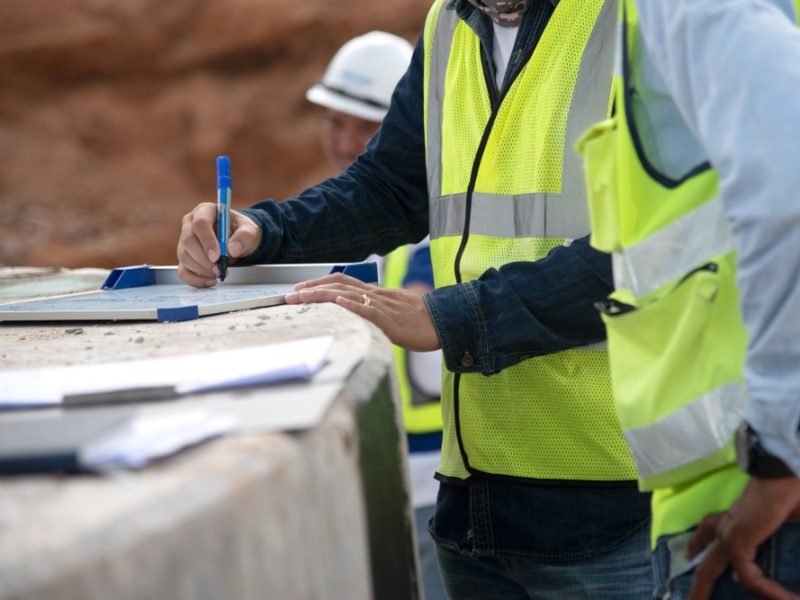A career as a delivery manager and a project manager involves leadership and management. While both roles help businesses to improve business productivity, there are several differences between a delivery manager and project manager role.
If you are considering a career as a delivery or project manager, learning about the differences and similarities between each can help you better understand which is more suited to you.
This blog will explain the difference between a delivery manager and a project manager and mention the different types of jobs within each.
What is the difference between delivery manager and project manager?
Both project managers and delivery managers lead teams, interact with clients, and oversee project development. However, although some responsibilities may be similar, there are several key differences which set the two roles apart.
Differences between the role of a delivery manager and a project manager include their daily duties, qualifications, skills, work environments, and key responsibilities. While there may be some overlap between the two, focusing on what makes each career path different will help you identify which role aligns with your professional interests. So, what is the difference when it comes to delivery manager vs project manager?
What is a project manager?
A project manager can be defined as someone who works in project management and is responsible for the planning, procurement, and execution of a project. Often, this means managing people, resources, tasks, schedules, and scope for the duration of the project.
On a day-to-day basis, a project manager’s roles and responsibilities include communicating with project team members, ensuring resources remain within budget, and using problem-solving skills to overcome unforeseen problems and setbacks. Ultimately, a project manager is accountable for the delivery of a project throughout its lifespan.
To ensure a project’s success, project managers may also complete evaluations, implement changes where necessary, assess risk, and motivate team members.
Project managers typically require a business-related or project management undergraduate degree. Some employers may also expect project managers to obtain a project management certification in a specific methodology such as Scrum or Agile. While a postgraduate degree is usually not essential, it may prove to be advantageous.
To efficiently develop project strategy, project managers require strategic-thinking abilities and a comprehensive understanding of project management software. Furthermore, project managers have strong negotiation, leadership, and critical-thinking skills to effectively manage teams and complete projects within budget.
Project managers usually work in an office environment. However, depending on the project they may also be required to travel for work. For example, they may visit a project on-site to monitor and track progress.
What is a delivery manager?
A delivery manager can be defined as someone who is responsible for delivering products and services to a client. They do this by leading project teams, managing budgets, and tracking KPIs. Additionally, delivery managers frequently communicate with clients to ensure the project continues to meet their needs and requirements. While project managers define the vision, delivery managers make it happen.
The typical roles and responsibilities for a delivery manager includes searching for ways to improve performance, controlling business procedures, conducting data analyses, monitoring project progress, and assisting teams with issues and setbacks. Ultimately, a delivery manager is accountable for the performance of the team to ensure high-value projects are delivered to the client.
Throughout the lifespan of a project, delivery managers are also obligated to develop client relationships. Delivery managers often meet with clients to understand and learn their developing needs to ensure the project continually aligns with their requirements.
Usually, a delivery manager requires a business-related undergraduate degree. When working in the tech industry, or working on tech-based projects, employers may ask for a computing-related degree. Delivery managers may also wish to obtain a post-graduate degree in project management. Alternatively, it is possible to complete an apprenticeship degree, rather than studying full-time at university.
Strong collaboration, mentoring, financial, and risk management skills help delivery managers to prevent risk, allocate resources, and motivate team performance.
While delivery managers mostly work in an office environment, they also regularly visit clients, suppliers, and stakeholders. If a delivery manager is responsible for more than one team, they may also visit each team to monitor performance.
Types of project manager jobs
There are many types of project manager jobs to consider from marketing to electrical. Here are five types of project manager jobs for you to consider.
Marketing project manager
A marketing project manager plans, manages, and executes marketing campaign projects. They obtain the relevant and required skillset to carry out and deliver marketing campaigns on time and within budget. Additionally, they are likely to be responsible for managing and supervising the wider marketing team.
IT project manager
Responsible for a business’s IT strategy, an IT project manager requires significant knowledge of IT systems and software. It is essential in this industry that project managers are familiar with specific hardware to deliver successful projects. Furthermore, an IT project manager typically oversees the entire company’s IT department.
Construction project manager
Construction project managers oversee building projects from the initial planning stage to execution. Responsibilities are likely to include balancing budgets, allocating resources, communicating with clients and suppliers, and managing teams.
Electrical project manager
Delivering electrical solutions and systems to businesses, and infrastructure, electrical project managers are responsible for overseeing commercial electrical projects. Their duties often include monitoring resources, problem-solving, assigning tasks, and managing the full scope of the project.
Engineering project manager
Using their expertise to plan and direct the development of new products, designs, and processes, engineering project managers are responsible for leading research, proposing budgets, managing resources, and supervising teams.
Types of delivery manager jobs
While the role itself remains relatively similar, there are many different types of delivery manager jobs available in a range of industries. If you are considering a career in delivery management, here are three examples of delivery manager jobs.
IT delivery manager
With a focus on delivering IT services to clients and stakeholders, IT delivery managers ensure quality service by managing project teams, monitoring their progress, and building relationships with customers. Additionally, IT delivery managers are responsible for providing clients with technology tools and products that align with their needs and requirements.
Service delivery manager
A service delivery manager oversees projects to deliver superior customer service and high-value products to the client. To do this, they manage budgets, monitor progress, track performance, and survey client requirements. They have strong problem-solving skills so projects are delivered successfully and run smoothly.
Healthcare delivery manager
Healthcare delivery managers typically oversee several projects across various clients aiming to deliver healthcare solutions, transformation, and software. In some instances, projects include technical and confidential aspects. Ultimately in this role delivery managers use frameworks and tools to meet quality project standards.
Key Responsibilities
Delivery Manager Responsibilities
A Delivery Manager is primarily responsible for ensuring the smooth and timely delivery of products or services to clients. Their duties go beyond traditional project management and focus heavily on the end-to-end process, client satisfaction, and operational efficiency. Some key responsibilities of a Delivery Manager include:
- Managing Delivery: Overseeing the entire lifecycle of product or service delivery, ensuring the team meets deadlines and quality standards.
- Client Liaison: Maintaining communication with clients and stakeholders to ensure expectations are met and any concerns are addressed.
- Risk Management: Identifying potential risks in the delivery process and implementing strategies to mitigate them.
- Resource Allocation: Ensuring that resources such as time, money, and personnel are allocated effectively for successful delivery.
- Continuous Improvement: Implementing feedback loops to improve future deliveries and optimize processes.
Project Manager Responsibilities
A Project Manager focuses on the successful execution of specific projects, ensuring that they are completed on time, within budget, and according to specifications. Their role is project-centric, often dealing with a range of tasks related to planning, execution, and closure. Some core responsibilities include:
- Project Planning: Defining the scope, objectives, and goals of the project.
- Timeline Management: Creating detailed project timelines and ensuring that the project progresses according to schedule.
- Budget Management: Overseeing the project budget and ensuring financial resources are used efficiently.
- Team Coordination: Managing teams and ensuring proper communication and collaboration throughout the project.
- Project Reporting: Providing regular updates to stakeholders about project progress, risks, and any changes to the plan.
Qualifications
Delivery Manager Qualifications
To become a Delivery Manager, specific qualifications and experience are often required, particularly in industries like IT and product management. Some essential qualifications include:
- Educational Background: A degree in business, management, computer science, or a related field.
- Industry-Specific Certifications: Certifications like Agile, Scrum Master, or Lean Six Sigma can enhance credibility.
- Experience: Several years of experience in managing product or service deliveries, particularly in an operational or client-facing role.
- Leadership Skills: Ability to lead cross-functional teams and manage multiple stakeholders.
Project Manager Qualifications
A Project Manager typically needs a combination of education, certifications, and practical experience in managing projects across various industries. Key qualifications include:
- Educational Background: A degree in project management, business, or engineering can be beneficial.
- Project Management Certifications: Certifications such as PMP (Project Management Professional), PRINCE2, or Agile are often required.
- Experience: A proven track record of managing projects, ideally in the industry you want to work in.
- Leadership and Communication: Strong leadership, negotiation, and communication skills to manage teams and stakeholders effectively.
Skills
Delivery Manager Skills
A Delivery Manager needs a diverse skill set that covers both operational and leadership areas. Key skills include:
- Agile Methodology: Proficiency in Agile practices for managing iterative product or service delivery.
- Stakeholder Management: Strong ability to manage relationships with clients, vendors, and internal teams.
- Problem-Solving: Ability to quickly identify issues and find solutions to keep projects on track.
- Communication: Clear and effective communication skills to interact with teams and stakeholders.
- Risk Management: Expertise in identifying and mitigating risks in the delivery process.
Project Manager Skills
The skills required for a Project Manager are often more focused on managing the scope, schedule, and resources of specific projects. Key skills include:
- Project Planning: Strong ability to plan and break down complex projects into manageable tasks.
- Time Management: Skill in managing time and prioritizing tasks to meet deadlines.
- Budgeting and Financial Management: Proficiency in managing project finances and ensuring resources are used wisely.
- Team Collaboration: Excellent team coordination and collaboration skills to ensure all parties are aligned on project goals.
- Leadership: Ability to motivate teams and resolve conflicts to keep projects moving forward.
Explore our available job roles at ARM.
Why choose us?
Since 1996, ARM has worked to understand the people we work with and provide the best possible recruitment experience.
Our recruitment experts are specialists in identifying hidden talent and have significant experience in their field. Supporting you every step of the way, we strive to match your talent with the right role for you. So if you’re looking for a new employment opportunity, or still debating delivery manager vs project manager then get in touch with our team today and we can help you find the role that is right for you!
Get in touch now
If you are considering a career as a project or delivery manager or looking for project manager and delivery manager jobs, get in touch with ARM today to see how we can help.








